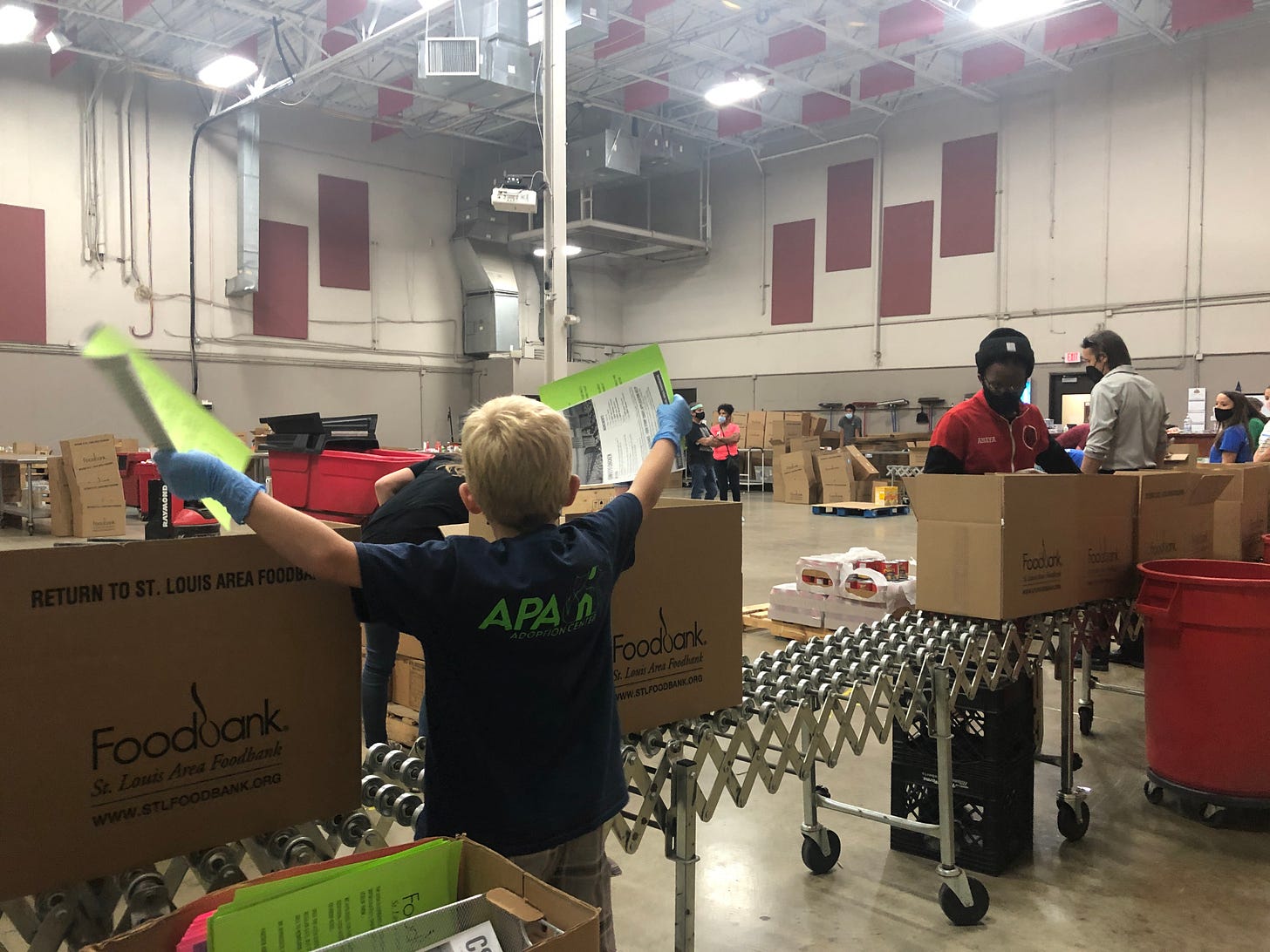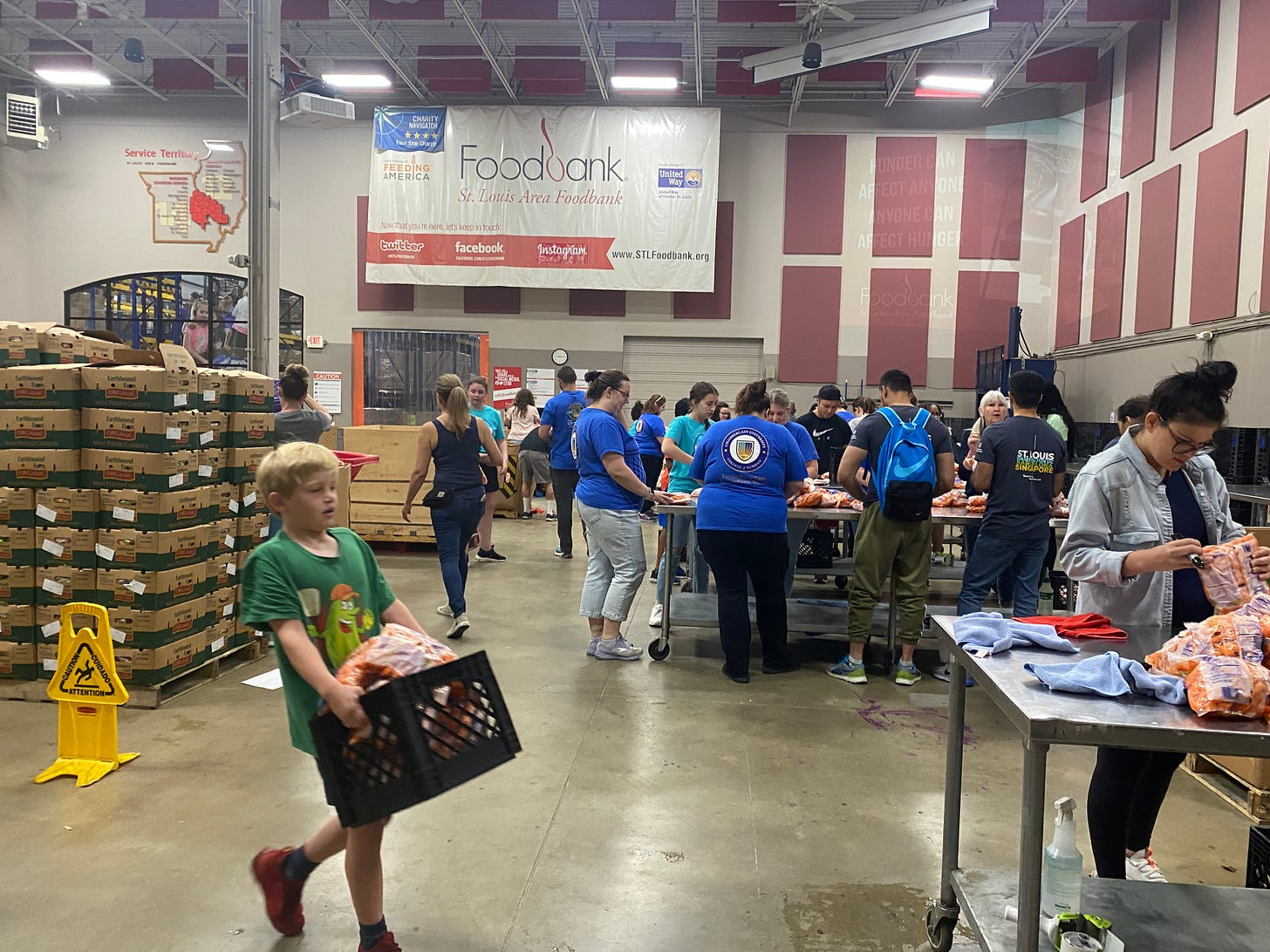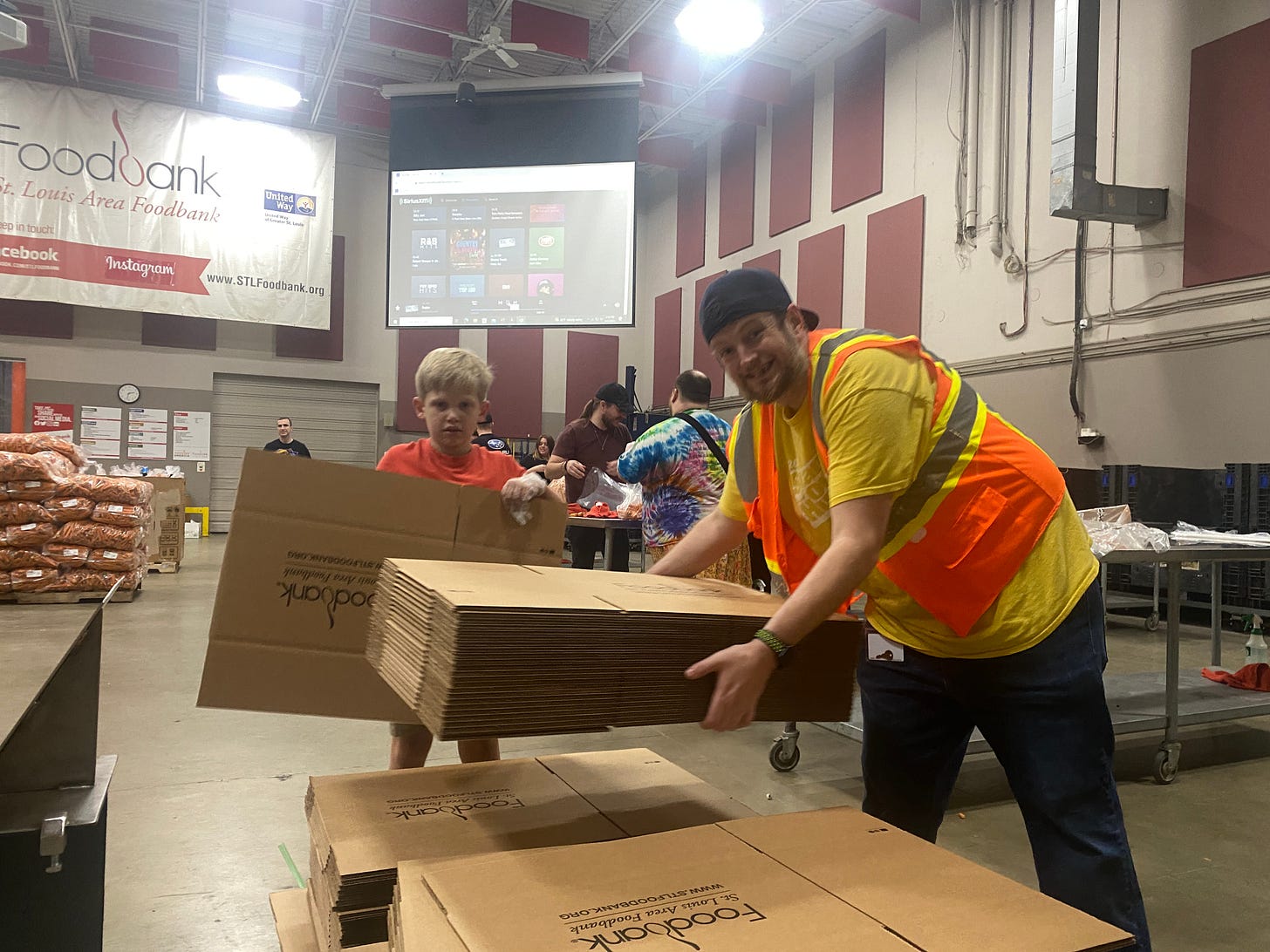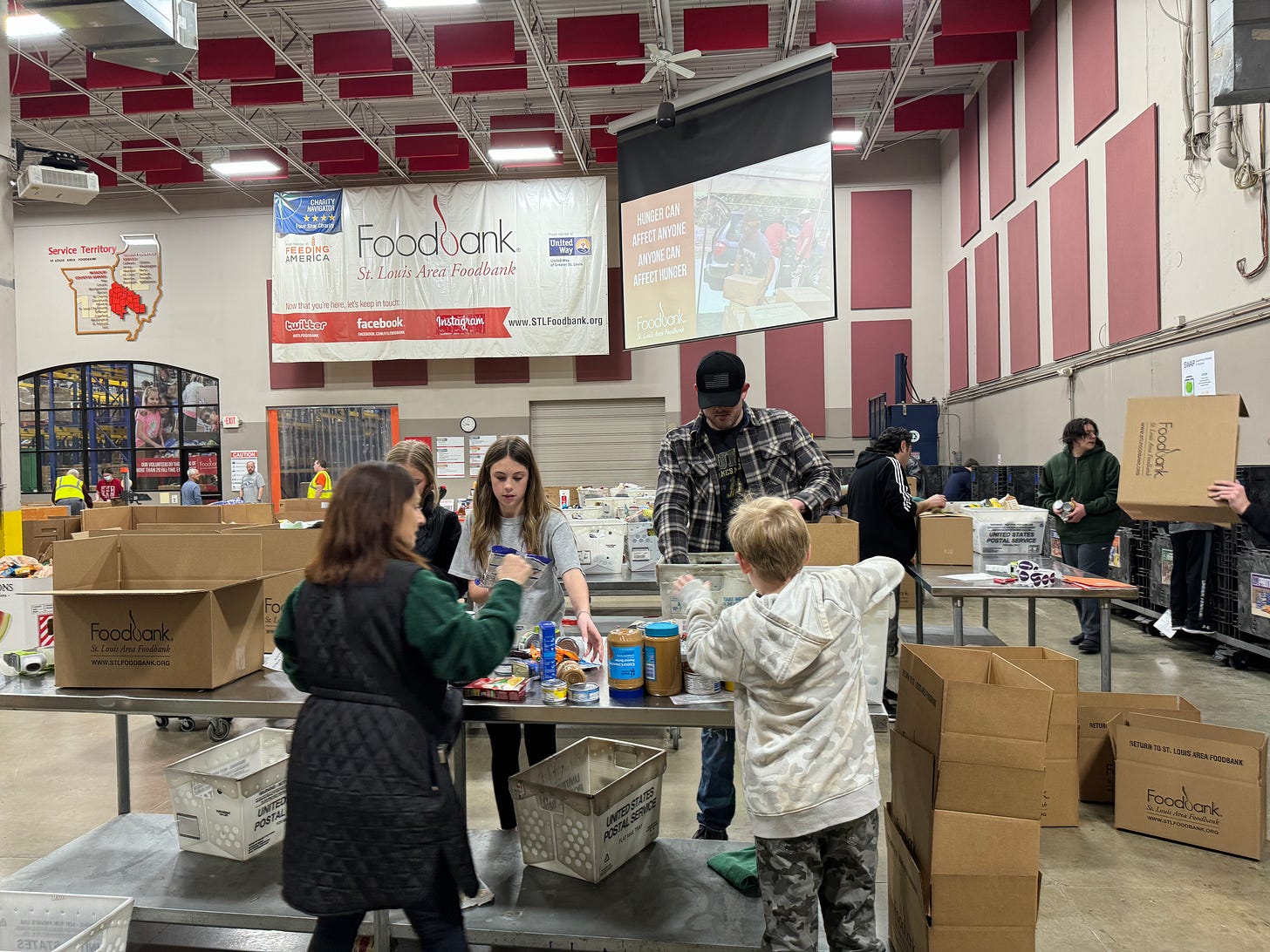Leadership Lessons Learned from Volunteering at the Food Bank
You can learn a lot about yourself and how other people work together when volunteering. Discover how you can best show up when you have an opportunity to give back to the community.
The first time I brought my son to volunteer at the St. Louis Area Food Bank he was five years old. He was assigned to add stickers to the boxes and add flyers inside of them. As he became more confident with his responsibilities, it wasn’t long until he became one of the hardest workers in the room
Many people volunteer at the repackaging center for a variety of reasons. Some volunteer because their employer requires it as part of their community service hours. Schools make it a field trip. Others may do so because they are looking for a fun activity post-retirement. Whatever the reason, donating your time can be most rewarding for the underserved and yourself.
Upon arrival at the repackaging center, volunteers are given a brief introduction about the food bank, watch a short video about the impact the food bank has had on a family, and are given instructions by their paid volunteer coordinators. Each person can choose their position or be assigned one if they have no preference. Once everyone is in place and knows what to do that’s when the music begins.
My son has learned many lessons about food insecurity, distribution, and warehouse management in his 75 hours volunteering at the food bank. He’s also learned about teamwork, collaboration, and how to fill in where he’s needed most. There are plenty of people there to tell him what to do. He has mostly learned from how I have shown up and helped set an example for others who might not be as engaged. It was my responsibility as his parent much like a corporate manager who uses the food bank as a social bonding experience with their team
Here are the leadership lessons from volunteering
Never say no to a role. Try every role at least once as an opportunity to learn something new.
Avoid being the bottleneck. This means anticipating when you need to focus more and speed up your productivity so others are not waiting on you.
Pick up the slack when others get behind. Others will not be as productive in certain tasks and it doesn’t cost anything to put in a little extra effort to support someone on the team
.
Show someone how to do a task, don’t just tell them. People learn tasks differently. The best way for other people to learn is to show them and offer tips as you go
.
Be the hardest worker in the room. Train your brain to think of volunteering at the food bank like having an extra gym membership. Not only will you break a sweat, but so will others on your team.
Be the last person to leave. While others might scatter for break time or when called to stop for the day, it’s a signal to ensure the workspace is clean and ready for the next group as much as possible even if it means it doesn’t count on your volunteer activity sheet
.
Get to know people personally. You will be surprised who you will meet when you volunteer and what you can learn. I’ve made new friends to play pickleball and potential connections for work.
Engage with multiple personality types. Your ability to lead will depend upon your ability to adjust your approach with different people. Asking someone if they are having fun is a great first question to engage.
Take the team photo for others. At the end of the shift, teams look for someone to take their picture to recap the experience, post on social media, or include in their company newsletter. For fun, I take a selfie before taking the group photo so people remember who did it.
Track your impact. My son has a Google Sheet where he tracks his hours, how many pounds of food he has helped process, and how many people he has helped. I took a photo of the volunteer time sheet and saved it in Google Photos to ensure he didn’t miss a shift. The activity is then added to his resume when he is ready to apply for a job or complete a college application.
How volunteering helps your mental health
One of the best ways to improve your mental health is to be in the service of others who cannot do anything for you in return. Those aren’t just numbers on your volunteer timesheet. They are real people, real families, and real communities being served. Some people don’t have a choice about what they eat. Some kids go hungry at school. Some people don’t know where their next meal comes from. Make an impact in the community despite your financial resources, employment status, or age. You will help those less fortunate and show up better in other areas of your life by donating your time.
Take a minute to share a comment on how volunteering at the food bank or another organization you care about helps you show up better for others.









